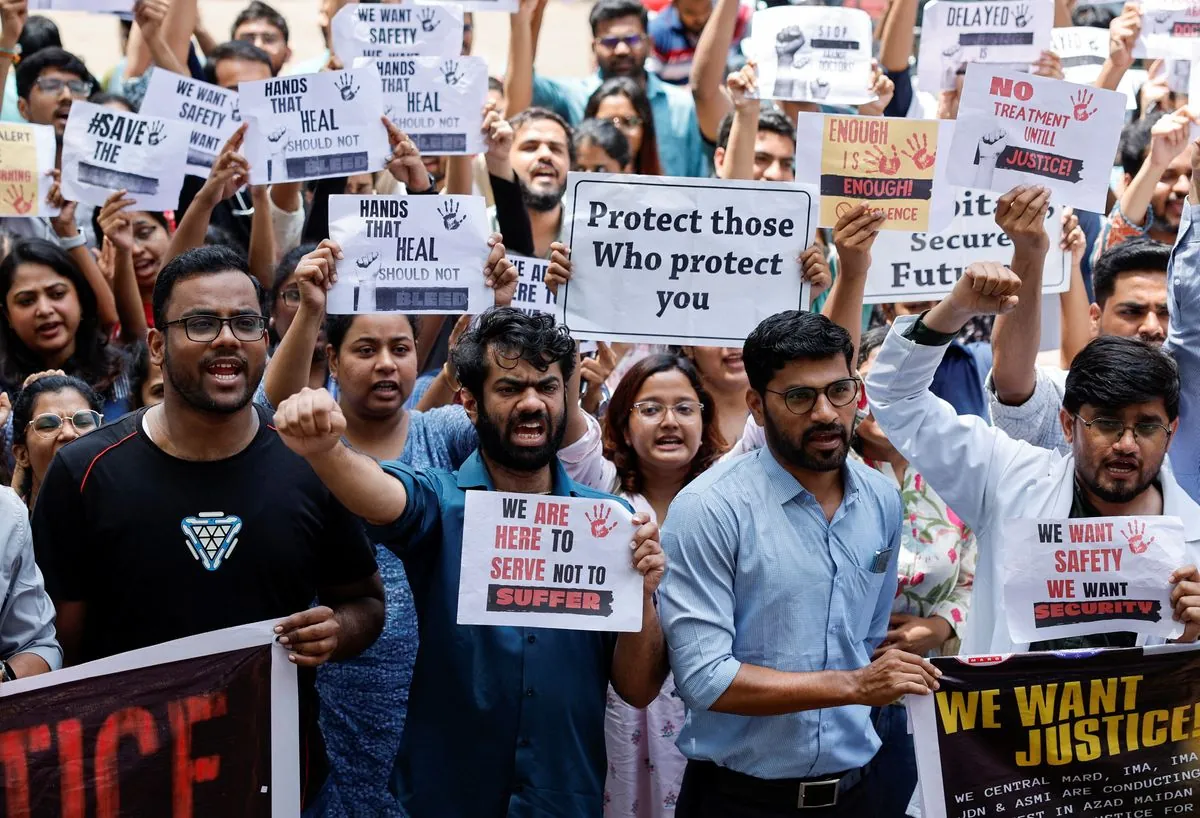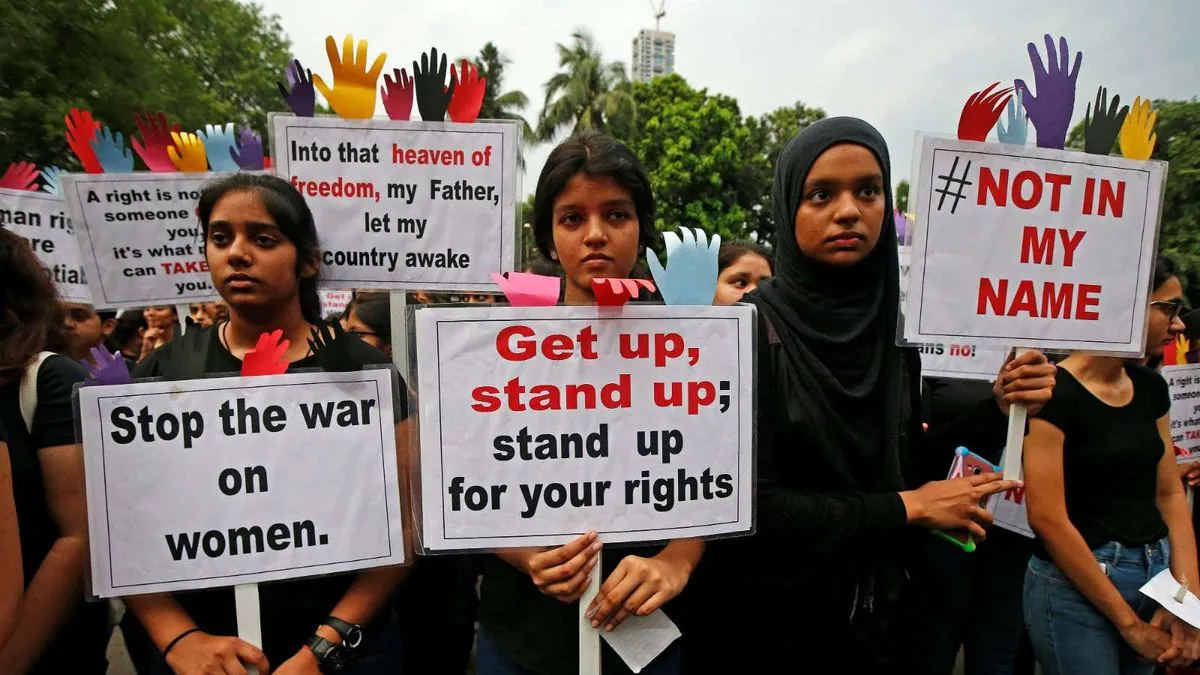Indian Doctors Lead Nationwide Protests Against Sexual Violence
Medical professionals across India protest following the rape and murder of a trainee doctor in Kolkata. The incident reignites debates on women's safety and political tensions in the world's largest democracy.

Indian medical professionals have initiated a nationwide protest movement, marking the longest-running demonstration by doctors in recent memory. The catalyst for this widespread action was a horrific incident that occurred on August 9, 2024, at R.G. Kar Medical College and Hospital in Kolkata, one of India's oldest medical institutions.
A 31-year-old female trainee doctor fell victim to a brutal assault after completing an exhausting 36-hour shift. The tragedy has ignited outrage across the country, with thousands of doctors participating in strikes and refusing to provide non-emergency care. In Kolkata, law enforcement has responded to ongoing demonstrations with tear gas and water cannons.
The incident has brought renewed attention to the persistent issue of sexual violence in India, the world's largest democracy with over 1.3 billion people. Protesters argue that the circumstances of this crime—targeting a healthcare professional in a supposedly safe environment—highlight the pervasive nature of the problem.
"This tragedy exposes the harsh reality that even those dedicated to saving lives are not safe in their own workplaces. We demand immediate action to ensure the security and dignity of all medical professionals, especially women."
The current protests echo the mass demonstrations that occurred in 2012 following a fatal gang-rape in Delhi. Despite the passage of more than a decade, the ongoing threat to women's safety has galvanized the medical community and beyond.

The incident has also sparked political tensions, particularly in West Bengal, where Kolkata is located. The state government, led by Mamata Banerjee, a prominent rival of Prime Minister Narendra Modi's Bharatiya Janata Party (BJP), faces criticism from opposition members calling for its resignation.
In response to the crisis, the Indian Supreme Court has intervened, calling for the formation of a task force to enhance workplace safety for doctors. This action by the highest judicial forum in India, established in 1950, represents a step towards addressing the complex issues underlying sexual violence in the country.
Meanwhile, other significant events are unfolding across South Asia. In Pakistan's Balochistan province, a series of terrorist attacks have resulted in dozens of casualties. The Balochistan Liberation Army, a separatist group, has claimed responsibility for these actions, which targeted police facilities, infrastructure, and migrant workers.
The region continues to grapple with the aftermath of the U.S. military withdrawal from Afghanistan, completed three years ago on August 30, 2021. The Taliban's return to power has led to increased restrictions on women's rights and raised concerns about the resurgence of terrorist groups.
In Bangladesh, the recent release on bail of Mufti Jashimuddin Rahmani, a prominent terrorist leader, has sparked worries about potential security threats. This development comes amidst growing concerns about the rise of Islamist militancy in the country.
Lastly, Sri Lanka is preparing for a presidential election scheduled for September 21, 2024. The country, still recovering from a severe economic crisis in 2022, faces the possibility of significant political change as voters consider candidates promising a break from traditional power structures.
These events collectively underscore the complex challenges facing South Asia, from issues of women's safety and political stability to economic recovery and regional security.


































